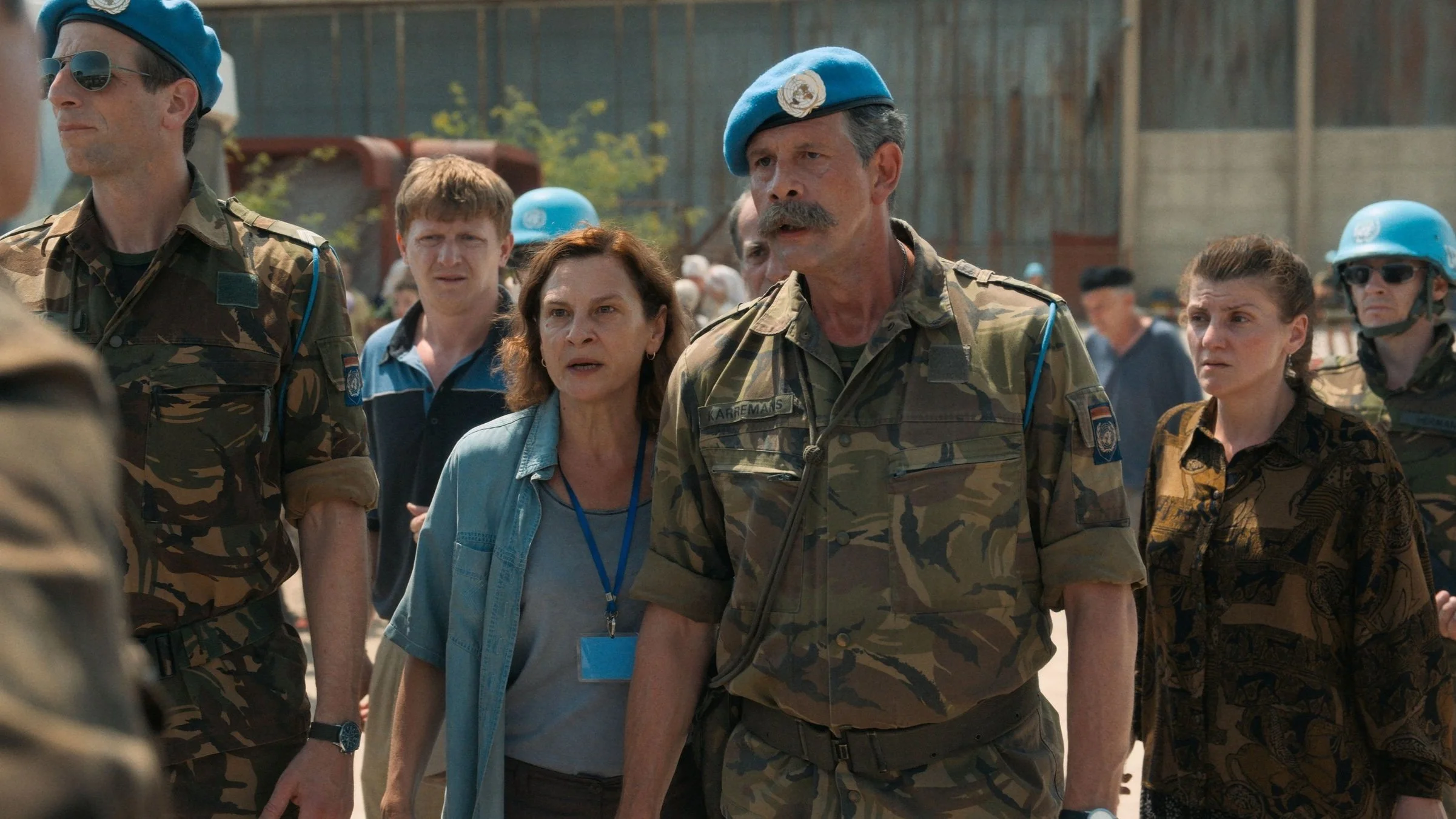Quo vadis, Aida?
In reconstructing what was a devastating event for her nation, Jasmila Źbanić creates a film of world class.
We have here a co-production involving no less than nine countries. Nevertheless, its creator as both writer and director is Jasmila Źbanić who was born in Sarajevo in 1974 and Quo vadis, Aida? is Bosnian through and through. Most of her films have been set in Bosnia Herzegovina and this one is centred on one of the most famous and tragic events in that country's history, the massacre that took place at Srebrenica when more than 8000 Bosnian Muslims were killed by Bosnian Serbs in July 1995. It was all part of the Bosnian War, but the victims were largely women and children and it is seen as amounting to genocide. Indeed, several details that emerge in this telling of it provide unsettling comparisons with the Holocaust.
A few months ago a Latvian film was released, The Rifleman (aka Blizzard of Souls), which dealt with that country's terrible experiences in the First World War. It was a decent film and has an Oscar nomination and, like Źbanić's film, it too deals with subject matter that resonates hugely with those whose homeland is the setting. But the fact is that Quo vadis, Aida? is in another class entirely. It demonstrates a mastery of cinema of which Źbanić can be proud and it is presented with the kind of integrity that encourages her to admit upfront and not in the end credits that despite being a true story some characters in this dramatisation are fictional.
It is doubtless the decision to present events through the eyes of a Bosnian Muslim named Aida Selmanagić that brings in an element of fiction. Aida (Jasna Djurićić) is an interpreter for the Dutch representatives of the United Nations stationed in the area and that role gives her a certain protection not available to her husband (Izudin Bajrović) or to their two sons, youngsters in their late teens (Boris Ler and Dino Bajrović). The UN temporarily sheltered at least some of the citizens who had fled Srebrenica, but their failure to protect a city which had been designated a safe area would soon lead to a realisation that the help promised to the Bosnian Muslims by General Mladić (Boris Isaković) was a sham and that what was in operation was an example of ethnic cleansing.
Aida's desperate attempts to keep her family safe give the film a personal thread of some power but, since their plight is representative of what the people there faced, this element never distracts from the sheer impact of the historical events themselves. Indeed, it could be argued that it gives them even more force in view of the impact achieved by a fine cast and especially by Jasna Djurićić whose forceful presence brings to mind the strength of Anna Magnani in Roberto Rossellini's classic Rome - Open City (1945).
The film offers a coda which stands as a latter-day reminder that the guilty often survive and flourish and that past atrocities come to be forgotten all too easily. That sequence apart, Quo vadis, Aida? takes place entirely in July 1995 and what happened then is so convincingly recreated here that without resorting to on-screen deaths the film stands as a fully realised expression of what occurred. Like Andrzej Wajda's heartfelt Katyń (2007), it is a worthy portrayal of the terrible historical event which it revisits in order keep the memory of it alive.
MANSEL STIMPSON
Cast: Jasna Djurićić, Izudin Bajrović, Boris Ler, Dino Bajrović, Johan Heldenbergh, Raymond Thiry, Boris Isaković, Emir Hadźihafiz Begović, Reinout Bussemaker, Teun Luijkx, Juda Goslinga, Ermin Bravo.
Dir Jasmila Źbanić, Pro Jasmila Źbanić and Damir Ibrahimovich, Screenplay Jasmila Źbanić, Ph Christine A. Maier, Pro Des Hannes Salat, Ed Jaroslaw Kaminski, Music Antoni Lazarkiewicz, Costumes Malgorzata Karpiuk and Ellen Lens.
Coop99 Filmproduktion/Deblokada Produkcija/Digital Cube/Extreme Emotions-Curzon.
104 mins. Bosnia & Herzegovina/Austria/Romania/Netherlands/Germany/Poland/France/Norway/Turkey. 2020. Rel: 22 January 2021. Available on Curzon Home Cinema. No Cert.


